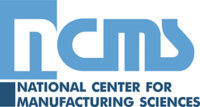NCMS is assisting the United States Army Ground Vehicle Systems Center (GVSC) in seeking a partner with the capability to provide the Armored Multi-Purpose Vehicle (AMPV) with required upgrades, which are specified below.
Background
The current Armored Multi-Purpose Vehicle (AMPV) Mortar Carrier (MC) variant incorporates a legacy M1064 mortar hatch, including carryover torsion springs that assist in opening and closing the hatch. AMPV survivability upgrades increased the weight of the AMPV hatch, increasing loads on the current torsion springs. This reduces the amount of assistance the torsion springs provide when opening or closing the hatch which, in turn, creates high ergonomic efforts required for operators to use the hatch. A new torsion spring pack has been designed to accommodate the extra weight of the survivability upgrades which will improve operator ergonomics and comply with the contractual requirement of not requiring more than 49.5 pounds of force to open or close a hatch (PSPEC-1165).
Solution Sought
Installation of springs at various locations, with quality standards applied and validated. Removal of roadside, center, and curbside hatches, disassembly of legacy springs and install of new springs, replacement of all seals, re-shimming of and re-installation of hatches.
Function test of hatch operation and measurements of gaps post install, meeting gap requirements (validation). Requesting monthly status report on cost, schedule, and technical performance progress of project.
Required Capabilities
The following standards must be met:
Mechanical (Brackets, Hardware, etc.):
- Material Certifications per TDP for each component
- Dimensional Report per TDP for each component
- Material Test Reports per TDP for each component
- Heat Treatment Material Certifications
- Ergonomic Test Reports per TDP
- First Article Inspection Report (FAIR)
Integration: Final Inspection Checklist
Packaging: Solid film lubricant/wrap in plastic wrap to ensure oil doesn’t wipe off any other surfaces.
Responses
To view the drawings of the new torsion spring pack, email a DD2345 to NCMS at: opportunities@ncms.org. Once a DD2345 is provided, drawings will be provided. Click here to download DD2345
Interested parties should provide a ROM in the provided cost summary form (CSF) and a white paper response with no more than four (4) pages, not including a cover page, using the format below. Responses are due on November 5, 2024. All questions or concerns can be addressed to opportunities@ncms.org.
White Paper Response:
- Describe the general approach including phases to accomplish the objective.
- Describe assumptions.
- Provide a detailed approach to meeting the objective including:
- List of tasks.
- List of deliverables.
- Provide high-level project schedule and timing.
- Describe rough order of magnitude cost.
- A more detailed cost analysis will be expected later in the process.
- Provide a description of recent and relevant experience in accomplishing similar evaluations using modeling and simulation tools and process. 7. Provide URLs to corporate presentations including engineering, modeling and simulation, prototyping, testing, and manufacturing capabilities.
Disclaimer and other Legal Information
NCMS encourages the participation of Disadvantaged Business Enterprises (DBEs), including Minority Business Enterprises (MBEs) and Women’s Business Enterprises (WBEs).
Responding to a Sources Sought, RFI, or Survey does not guarantee that a CTMA Program initiative will result. By submitting a response, you are agreeing to allow NCMS to share your information with the United States government. All submissions containing proprietary information shall be marked accordingly.
Any industry or academia participant awarded a contract by a participating government sponsor pursuant to a Sources Sought, RFI, or Survey will be compensated, under the agreement, on a cost-reimbursable basis. Each project participant will be expected to share in the total project cost by contributing cash or in-kind resources.
Under the CTMA Program, the parties shall limit participation on the project to (1) U.S. citizens, (2) lawful permanent residents as defined by 8 U.S.C. 1101(a)(20), (3) other protected individuals as defined by 8 U.S.C. 1324b(a)(3), and (4) Canadian citizens (pursuant to the principles underlying the Canada-U.S. Free Trade Agreement), if such participation will involve visual inspection of the Technology, Intellectual Property or Technical Information, or oral exchanges of information about the foregoing. We also require the project participants to furnish NCMS, upon request, with proof of the citizenship status of its personnel participating on the project, including (1) U.S. citizens; (2) legal permanent residents; and (3) foreign nationals who are not permanent residents. In instances where it is necessary to involve foreign national employees in the visual inspection of the Technology, Intellectual Property, or Technical Information, or oral exchanges of information about the foregoing, the parties will be required to furnish to NCMS proof of appropriate valid export license, or technical assistance agreement, or exemption from licensing requirements (e.g. Canadian exemption) to the extent required by the International Traffic In Arms Regulations (“ITAR”) or the Export Administration Regulations (“EAR”). A copy of such license or agreement shall be furnished to NCMS before any disclosure of information to such foreign person. In the event a party believes that the subject matter of the project agreement is not covered by ITAR, that party may request a written waiver of the requirements of foreign national provision in the CTMA Agreement, which may be granted if the NCMS contracting officer agrees that ITAR does not cover the subject matter.
These requirements also apply to individuals who have dual citizenship status.




